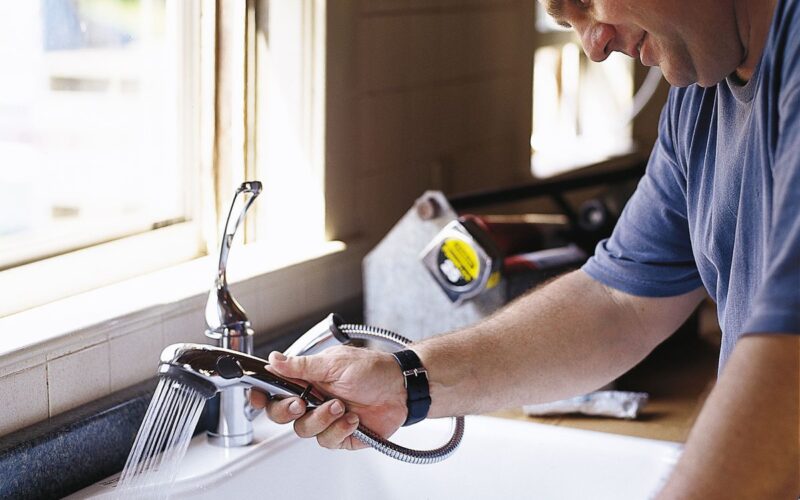While it may be tempting to ignore common kitchen plumbing issues, they can end up costing you a lot of money in the long run.
Fortunately, there are several things you can do to prevent these issues from occurring. Let’s look at a few of the most common ones and how you can avoid them.
Clogged Drains
A clogged drain is one of the most frustrating plumbing problems that can occur in a home. It can cost a homeowner money and cause a lot of headaches.
Thankfully, there are some preventative maintenance habits that can help homeowners avoid having to deal with clogged drains in the future. In addition, it is a good idea to have a professional plumber inspect your system on a regular basis.
Never pour grease, oil or fats down a drain; warm oils will run through your pipes until they cool and congeal, which can clog them up. To prevent this from happening, store grease in a jar and throw it into the trash or compost bin when it is full.
It’s also a good idea to use a drain strainer in your kitchen sink at all times to keep food scraps and other waste from getting stuck. Additionally, avoid putting coffee grounds, egg shells, fruit peels and corn husks down the disposal.
Leaky Faucet
Leaky faucets can be one of the most annoying plumbing issues to have to deal with. They waste a lot of water, and they can also cause damage to your home.
A leaky faucet can quickly rack up your water bill, so it is important to address this issue before it gets worse. You can do some simple repairs yourself, but if the problem is too complicated or the work requires specialized tools, you will likely need a plumber to help you out.
When it comes to leaking faucets, the most common causes are O-ring issues, changes in water pressure, or a broken valve seat. But don’t give up if these don’t fix the problem.
Clogged Garbage Disposal
If you are looking to prevent common kitchen plumbing issues, like clogged garbage disposals, there are a few simple steps that can help. First, make sure that your disposal is properly working and that there are no clogs in the T-line or P-trap underneath the sink.
Secondly, avoid flushing down food scraps that can damage your disposables
blades or clog your drain. This includes potato peels, corn husks, egg shells and other thick, sticky materials that cannot be ground up.
Instead, dispose of these foods in the trash or a compost pile. Grease, oils and other fats can also build up in your pipes over time, causing a clog.
Leaking Pipes
Oftentimes, these types of issues can be prevented by looking closely at your plumbing setup. This way, you can spot problems early on and take preventative measures before they become an issue that needs to be fixed by a plumber.
Inspecting your pipes is easy and simple. It only takes a few minutes each day, and you will be able to spot small issues before they become a big headache!
If you spot a leaky pipe, try using self-securing tape to create a tight seal around the hole. Apply the tape to the pipe and then wrap it around the leaking area, flattening it so it is completely sealed.
This is a temporary fix, but it should be sufficient for the time being. If it continues to leak after the tape is applied, you will need to call a plumber for an expert repair. You can go online to websites such as https://www.fixitrightplumbing.com.au/plumber-melbourne/ that have a ton of information on plumbers, plumbing services, and all things plumbing related.
